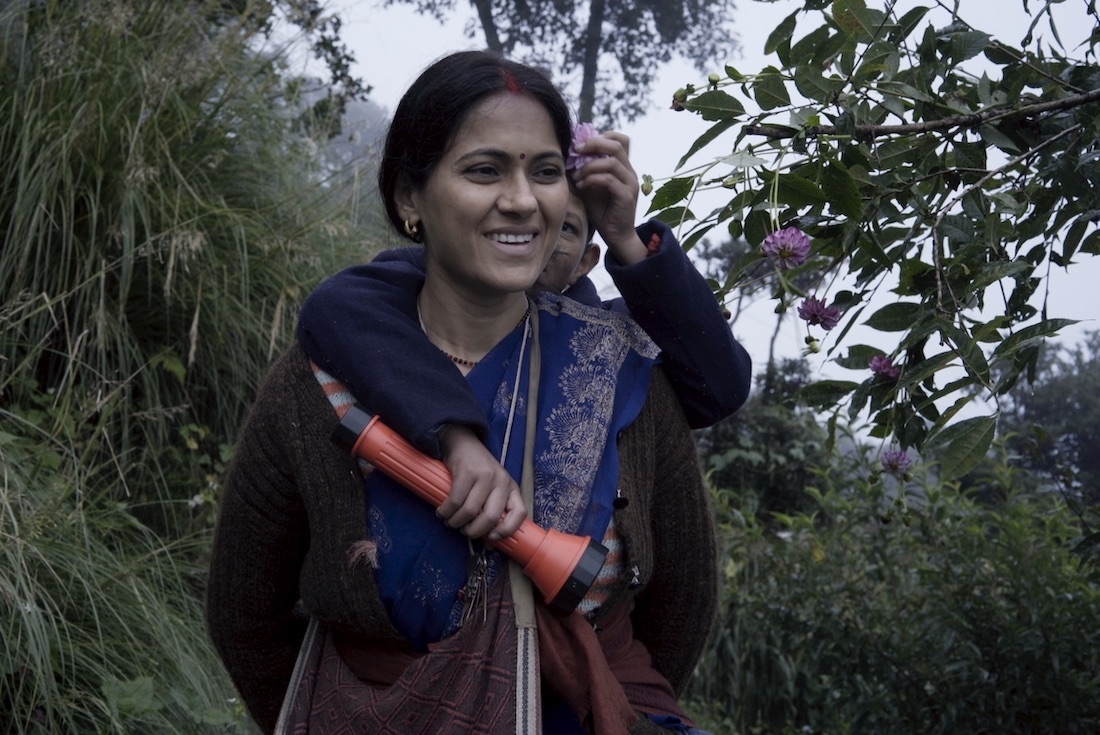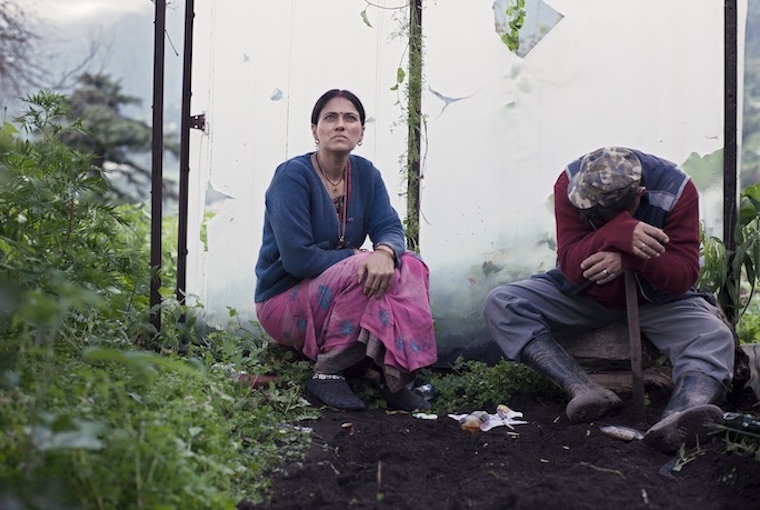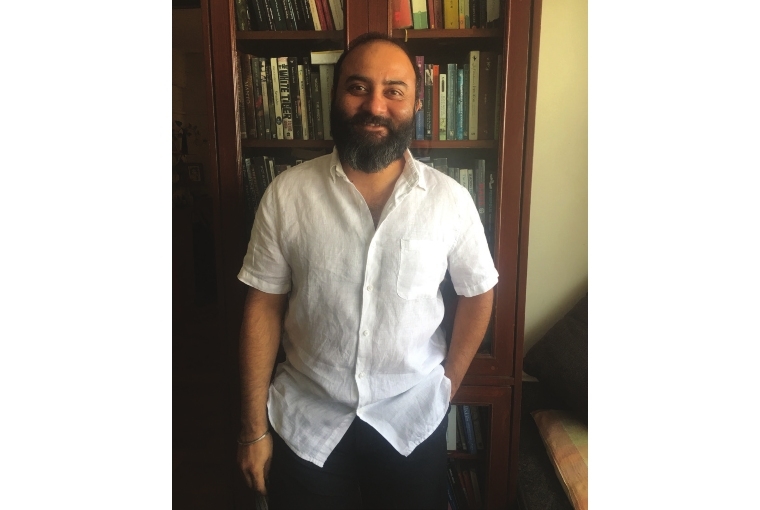

When I sat down to read Ajitpal Singh’s answers to my questions, it struck me that his childhood has been a mixed bag of great joy and deep suffering. It can be clearly divided into two parts—Before and After Operation Bluestar; an event that has deeply affected his life. Having lived in a village in Punjab, walking with buffalos, bathing in the rain and daydreaming; being discriminated against for being a Sikh and moving homes to stay safe, away from his father who had also moved homes to earn a better living for his family.
However there was light at the end of the tunnel for Ajit finding solace in writing and filmmaking. The romance began when he started reading Premchand in school, which later blossomed into filmmaking. He first experimented with shorts and worked for a few German documentaries as well before making his debut feature Fire In The Mountains, previously named Swizerland. Here he talks about the same and also a little about his other recent short film, Rammat Gammat.
What drew you to filmmaking?
I didn’t study filmmaking because I didn’t know for many years that this was my calling. I took filmmaking seriously only when I was thirty three years old. Even in college, when I was doing BSc, I spent most of my time reading literature, writing and directing plays. So when I finished graduation I knew that I didn’t want to get into the Air Force, nor did I want to pursue an MBA or MCA. I tried many things - poetry, theatre, photography, animation and making documentary films. I didn’t have focus because I think all I wanted to do was write stories, but I had no command over English—the language in which I studied in college, and the language in which I was reading international literature. Also my command over Hindi had fizzled out. I studied at a Hindi medium school but college in English medium and had thought that after college, I would just try to focus on English as it made one’s prospect of landing a much better job. Slowly I came to the conclusion that if I make films I don’t need to master English or Hindi, I need to master a visual language and I started making experimental short films.
What is it about writing and filmmaking that intrigues you the most?
Writing is an addiction. When you write and if it flows well, you always get to a moment that you end up writing something that you didn’t plan to write, like a character would behave in a totally unexpected way and you feel as if your hands were just typing while someone else was dictating it. Those few seconds are so addictive that you go through the process all over again to experience that high one more time.
It is also a collaborative process; directors are overrated, and it’s a team that does the work. Your job, as a director, is to be the gatekeeper, to decide what you are going to allow into the house and what you are going to reject.
Before Fire In The Mountains happened, you worked on various shorts/documentary shorts. How challenging was the leap of changing scales? Do you have a preference?
The scale changes from short to feature film and you feel more pressure to get it right. The pressure is what you need to fight against; you can’t take on the pressure of getting it right, because that’s how you screw it up. You need to enjoy the process of digging deeper into the screenplay, allowing it to speak to you, figuring out what form is correct, figuring out how you want to work with the actors, what is the arc of the character, what is the theme of the story and what is the subtext. So if you stop worrying about the results and focus on the process, most likely the results will be good.

Tell me about your latest short, Rammat Gammat. How did you find the story?
A friend, Yogi Singha had written a story inspired by Premchand’s Bade Bhai, I really loved it, but I saw the potential of telling the entire story from a minor character—a poor boy’s point of view and that changed the entire story. In its present form, it has no similarities to Premchand’s original story. The inspiration came from my years of growing up in a Gujarat village where I was discriminated just for being a Sikh. I was not selected in sports teams because I was a Sikh even though I was a better player than the others. So we made the main protagonist, Bhushan, into a lower caste boy, who is also discriminated against.
You’ve extensively worked as a researcher on sixteen German documentary films in India. How was the experience?
Everything that I know about India I know because of those films. For six years when I was doing that work, I travelled all across India except Nagaland and Orissa. Apart from that I have been everywhere and usually those trips lasted weeks, if not months. I learnt one important thing about our country, whether it’s Kashmir, Bihar, Bengal, UP, Maharashtra, Kerala or Andhra, Indian people are generally very helpful. They usually go out of their way to help a stranger and that gives me hope that this time of hatred will end because inherently we are kinder people.
Talking about your debut feature film, what was the starting point for you? Also why was it titled ‘Swizerland’ earlier and not Switzerland?
I made Rammat Gammat and showed it to Ajay Rai, who is a producer at Jar Pictures but also a friend. He loved the short film and asked me to make a feature film with his company. There was only one condition that I should set the film in Uttrakhand because he could do it on a lower budget there. Around the same time my cousin sister died, because her husband refused to take her to the hospital, thinking she is possessed by a ghost. I was trying to develop something around it to deal with the loss and guilt that I was experiencing. When I went to Uttrakhand and I learnt about this ceremony called Jagar where a family invokes Gods and Goddesses in the bodies of men and women to seek answers for their misfortune, I knew I could make a film here.
Also, I named it Swizerland, because it’s a story of a family running a homestay called Swizerland without ‘T.’ On a deeper level, it’s about a family who dreams of a better life, a life like in Switzerland, but their reality is different.

Ajitpal Singh
Tell me about your experience with Filmbazaar and how it has become a platform for budding filmmakers.
Fire In The Mountains has been extremely lucky, before Filmbazaar it was part of NFDC Script lab and then Filmbazaar Work-In- Progress Lab. Without these two labs it would have taken me another year to bring the script and film where it is today. You work alone as a writer, then you work in a team of two with your editor, now imagine, suddenly you and your editor are not alone. There are five more heads helping you with their thoughts. You engage, you debate, you argue and suddenly you learn something that you would have learned anyway but you would have spent few months staring at walls to learn those things. For a first or second time filmmaker, the labs are extremely important. They can make you a better artist if you genuinely invest your energy with an open mind. Filmbazaar has been around for thirteen years, and the kind of films that have come out from there are phenomenal. It’s a place where you go to meet people whom you usually don’t meet in the hustle and bustle of Bombay.
Lastly, how hard is it to follow your dreams?
Very hard when your dreams don’t materialise and very fulfilling when they become reality...Dreams in themselves mean nothing, I have spent years dreaming and not really doing anything about them, then you learn to break them down into smaller chunks and take actions step by step and once you do that, slowly they become real.
This article first appeared in our digital June 2020 Bookazine.
Text Hansika Lohani Mehtani